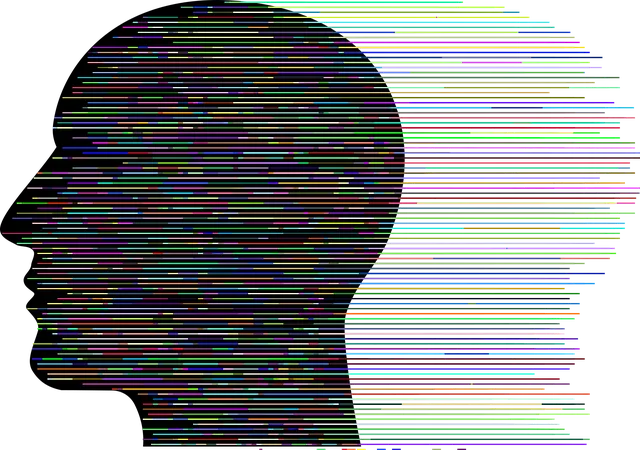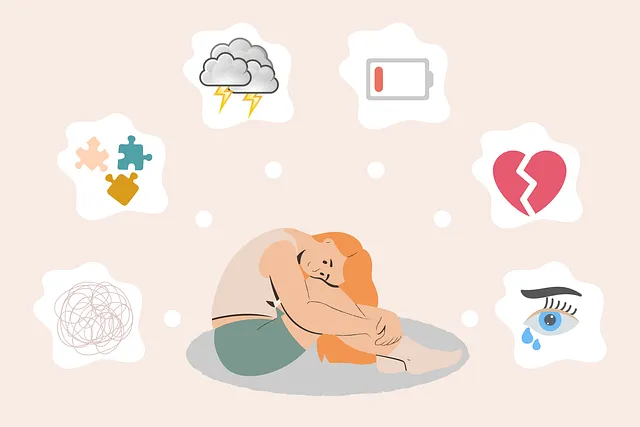Therapeutic yoga, as advocated by Kaiser mental health therapists, is a holistic approach to stress reduction and improved mental well-being. Combining physical postures, breathing exercises, and meditation, it cultivates mental clarity, emotional balance, and self-regulation, making it effective for anxiety, depression, and trauma. Certified professionals integrate yoga into treatment plans, creating safe spaces for clients to process traumatic experiences and reconnect with themselves through tailored mind-body practices. This approach enhances mental clarity, reduces symptoms of stress-related disorders, and fosters resilience in a supportive environment.
“Therapeutic yoga emerges as a powerful tool in the mental health professional’s arsenal, offering a holistic approach to enhancing mental clarity and reducing stress. This article delves into the transformative potential of yoga for individuals seeking solace from the demands of modern life. We explore evidence-based practices employed by Kaiser Mental Health Therapists, who integrate customized yoga routines tailored to individual needs. By understanding the benefits and overcoming challenges, therapists can harness the ancient art of yoga to complement traditional therapy, fostering profound mental well-being.”
- Understanding Therapeutic Yoga: A Powerful Tool for Mental Health Professionals
- The Benefits of Yoga for Mental Clarity and Stress Reduction
- Incorporating Yoga into Therapy Sessions: Kaiser Mental Health Therapists' Approach
- Designing a Customized Yoga Routine for Individual Needs
- Evidence-Based Practices in Therapeutic Yoga for Enhanced Well-being
- Overcoming Challenges and Integrating Yoga into Your Practice
Understanding Therapeutic Yoga: A Powerful Tool for Mental Health Professionals

Therapeutic yoga is a powerful tool in the mental health arsenal, offering a holistic approach to well-being that mental health professionals can utilize to benefit their clients. This ancient practice goes beyond mere physical exercise; it cultivates mental clarity and emotional balance through a combination of precise postures, breathing techniques, and meditation. For Kaiser mental health therapists, incorporating yoga into treatment plans can be a game-changer, especially when addressing conditions like anxiety, depression, and stress-related disorders.
Kaiser clinical social workers and trauma-focused counselors can find unique ways to integrate yoga into their practices, tailoring sessions to meet individual needs. By promoting relaxation, improving body awareness, and enhancing self-regulation, therapeutic yoga provides a safe space for clients to reconnect with themselves and process traumatic experiences. Even dance therapy programs at Kaiser can draw inspiration from yogic principles, creating dynamic movements that stimulate the mind and body while fostering a sense of freedom and expression.
The Benefits of Yoga for Mental Clarity and Stress Reduction

Yoga is a powerful tool for enhancing mental clarity and promoting relaxation, making it an appealing practice for individuals seeking support from Kaiser mental health therapists. The mindful nature of yoga encourages practitioners to focus on the present moment, quieting the mind’s constant chatter. Through a combination of physical postures, breathing techniques, and meditation, yoga helps reduce stress hormones and calms the nervous system. This tranquility allows individuals to gain a sense of control over their thoughts and emotions, fostering better mental clarity.
In today’s fast-paced world, many people experience heightened levels of stress, which can negatively impact their overall well-being. The specialty therapy kaiser offers often incorporates yoga as a complementary practice to address these concerns. By engaging in regular therapeutic yoga sessions, individuals can learn effective stress reduction techniques that extend beyond the studio, empowering them to navigate life’s challenges with renewed mental clarity and resilience.
Incorporating Yoga into Therapy Sessions: Kaiser Mental Health Therapists' Approach

At Kaiser Mental Health, therapists recognize the profound benefits of incorporating therapeutic yoga into treatment plans for improved mental clarity and well-being. This holistic approach is particularly effective in managing stress, anxiety, and trauma, conditions often treated by kaiser private practice therapists and family therapy through kaiser. Many mental health professionals within the network are certified in yoga therapy or similar practices, enabling them to guide clients through mindful movements and breathing techniques tailored to their unique needs.
Therapeutic yoga sessions at Kaiser aren’t about mastering complex poses but rather fostering a safe space for individuals to connect with their bodies, minds, and emotions. These sessions can be trauma-focused, helping clients process past traumas with the support of attentive kaiser trauma-focused counselors. By combining traditional therapy with yoga, therapists aim to enhance mental clarity, reduce symptoms of depression or PTSD, and promote overall resilience in a supportive environment.
Designing a Customized Yoga Routine for Individual Needs

Designing a personalized yoga routine tailored to individual needs is a powerful approach for enhancing mental clarity and overall well-being. Kaiser mental health therapists often emphasize the benefits of combining traditional therapy with complementary practices like yoga to address both the mind and body. When creating a customized routine, consider factors unique to each person’s journey. For instance, individuals dealing with anxiety might focus on gentle movements and breathing exercises, while those recovering from trauma may require more structured and supportive poses.
This tailored approach ensures that the yoga practice aligns with personal goals and challenges, making it an effective tool in the hands of experienced kaiser private practice therapists or those specializing in dual diagnosis treatment at kaiser intensive outpatient programs. By incorporating specific poses, sequences, and mindfulness techniques, a customized routine can help reduce stress, improve focus, and foster a deeper connection between mind and body—all contributing to enhanced mental clarity and emotional resilience.
Evidence-Based Practices in Therapeutic Yoga for Enhanced Well-being

Therapeutic yoga has emerged as an evidence-based practice within the mental health realm, offering a holistic approach to enhancing well-being. Studies have shown that this ancient art can significantly contribute to improving mental clarity and reducing stress. Yoga combines physical postures, breathwork, and mindfulness—a trio of techniques recognized by Kaiser network of therapists for their therapeutic benefits.
Incorporating yoga into one’s routine can be particularly beneficial for individuals seeking alternatives to traditional cognitive behavioral therapy (kaiser cognitive behavioral therapy) or looking to complement their existing treatment plans. Mindfulness kaiser therapists often prescribe yoga as a tool to manage anxiety, depression, and even post-traumatic stress disorder (PTSD). The practice encourages mindfulness, helping individuals become more attuned to their bodies and minds, ultimately fostering a deeper sense of mental clarity and emotional balance.
Overcoming Challenges and Integrating Yoga into Your Practice

Overcoming Challenges and Embracing Yoga’s Power
Integrating therapeutic yoga into your mental wellness routine can be a transformative journey, especially for those seeking to enhance their mental clarity. Many individuals face challenges in maintaining a consistent yoga practice, whether it’s scheduling conflicts, physical limitations, or finding the motivation to begin. However, with dedication and support from professionals like Kaiser mental health therapists, these obstacles can be overcome. Customized yoga programs tailored by kaiser multicultural counselors cater to diverse needs, ensuring that seniors mental health kaiser is addressed holistically.
Kaiser depression management techniques often incorporate mindfulness practices, making therapeutic yoga an ideal complement. The slow, controlled movements and deep breathing techniques help calm the mind, reduce stress, and improve focus. Regular practice can lead to better emotional regulation, enhanced self-awareness, and increased resilience in navigating life’s challenges. By combining traditional yoga with professional guidance, individuals can unlock the full potential of this ancient practice for their mental clarity and overall well-being.
Therapeutic yoga, as championed by Kaiser Mental Health Therapists, offers a holistic approach to enhancing mental clarity and reducing stress. By incorporating tailored yoga routines into therapy sessions, professionals can provide clients with a unique and evidence-based practice that addresses both physical and psychological well-being. This comprehensive strategy not only complements traditional therapeutic methods but also empowers individuals to cultivate resilience and inner calm. As the practice gains traction in the mental health realm, ongoing research and collaboration between therapists and yoga experts will further refine these techniques, ensuring optimal benefits for those seeking mental clarity and stress reduction.






